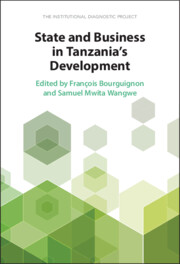A suite of case-study monographs emerging from a large research program on the role of institutions in the economics, and the political economy of development in low-income countries, supported by a synthesis volume of the original case studies. This program was funded by the United Kingdom’s Foreign and Commonwealth Development Office during a period of six years, during which program researchers had regular interactions with its staff, either directly or through Oxford Policy Management (the lead managing organisation).
Books in this collection:
François Bourguignon and Jean-Philippe Platteau Institutional Challenges at the Early Stages of Development: Lessons from a Multi-Country Study
Selim Raihan, François Bourguignon and Umar Salam (Eds.) Is the Bangladesh Paradox Sustainable?
António S. Cruz, Ines A. Ferreira, Johnny Flentø and Finn Tarp (Eds.) Mozambique at a Fork in the Road
François Bourguignon, Romain Houssa, Jean-Philippe Platteau and Paul Reding (Eds.) State Capture and Rent-Seeking in Benin
François Bourguignon and Samuel Mwita Wangwe (Eds.) State and Business in Tanzania’s Development

